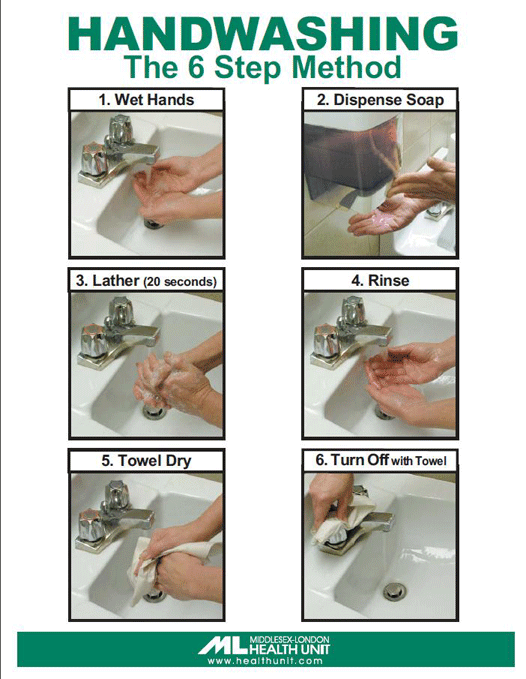Are these germs dangerous?
MRSA and VRE can affect people in two different ways - colonization or infection. If people carry the organism in their nose, on other parts of their body, or in their bowels with no signs of illness, they are colonized. If they show signs of illness, they are infected.
Most people with healthy immune systems that come into contact with these bacteria simply get rid of them and don’t show any signs of illness. Those with underlying medical conditions and/or who are hospitalized may be at greater risk for either colonization or infection. Some of the medical conditions that place people at greater risk include HIV or AIDS, organ transplants, major burns, and/or treatments that depress the immune system. Being on certain kinds of antibiotics also puts certain people at increased risk for infection.
Back to top
How do the germs spread?
MRSA and VRE are both spread by contact, either with the contaminated hands of caregivers and/or with objects contaminated by the skin or body fluids of an infected person. They are not spread through the air like the common cold or influenza. If caregivers do not wash their hands properly, they can spread the bacteria to the next person they care for. Surfaces contaminated with skin or body fluids can also spread the bacteria. MRSA and VRE are able to survive on hands and objects in the environment for a significant length of time.
The best way to stop these germs from spreading is by keeping your hands clean and reminding your caregivers to do so as well. Frequently touched surfaces such as doorknobs, light switches and handrails should be cleaned often, especially in the case of VRE. Ensure that the cleaning product is labeled with the word ‘disinfectant’ and follow the manufacturer instructions for use.
Back to top
Is it safe to go home from hospital when I have MRSA or VRE?
Yes. In fact, it is better to go if at all possible. This helps to prevent colonization or infection. People who remain in hospital for long periods have a greater chance of acquiring one or both of these organisms.
Back to top
What if I live in a Long-Term Care Home (LTCH)?
Antibiotic-resistant organisms like MRSA and VRE are handled differently in a LTCH than in a hospital because residents are healthier than patients in hospitals, and the LTCH is their home, not a temporary placement. If you are identified with MRSA or VRE, you may share a room with another resident, but the LTCH will carefully select your roommate. Good hand hygiene for staff, residents, visitors and for yourself is very important.
When providing direct care, staff should use gloves and gowns. If there is a “Precautions” sign on the door, your visitors should talk with staff in the facility to find out if they need to wear a gown and gloves as well.
Equipment is usually not shared with other residents. If it is, it must be cleaned and disinfected between residents. Room cleaning and disinfection is especially important.
Back to top
What do I do if I am discharged to my own home?
If you have been diagnosed with MRSA or VRE, advise your physician, paramedics, nurses or other care providers. This helps prevent the germs from spreading to others.
Remember to wash your hands well before receiving treatment, and remind your care providers to do the same before and after your care. Some health care providers may wear a gown and gloves when providing care. Your family or visitors do not need to use a gown and gloves, but they may want to if your body fluids may soil or touch their clothing.
Back to top
What precautions should I take at home?
Thorough handwashing
Handwashing is the best way to prevent the spread of infections. Wash your hands well and follow The Six Steps to Good Handwashing (PDF 96KB) or use an alcohol-based hand rub.
- Before preparing food and before eating
- After using the toilet. If you have an assistant who helps with toileting or personal hygiene, ask them to do the same.
- Make sure anyone using the washroom washes their hands well afterwards.
The six steps to good hand washing are:
- Wet hands with warm running water
- Put liquid soap on hands
- Lather hands and scrub for 20 seconds
- Rinse under running water
- Dry your hands with paper towels
- Use the towel to turn off the taps

